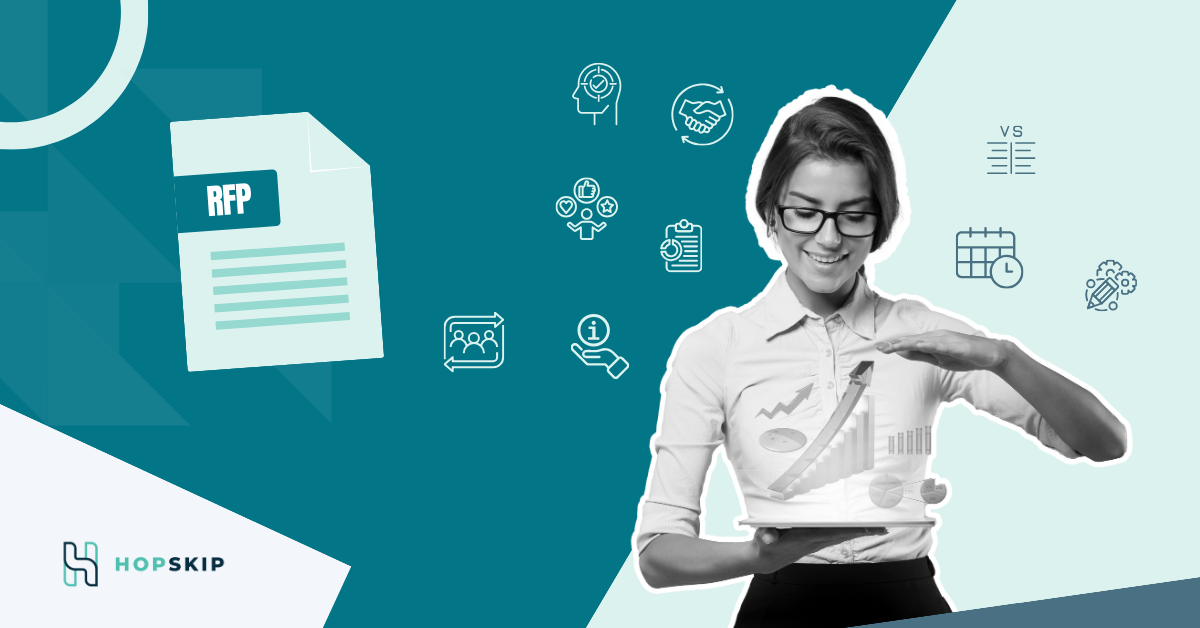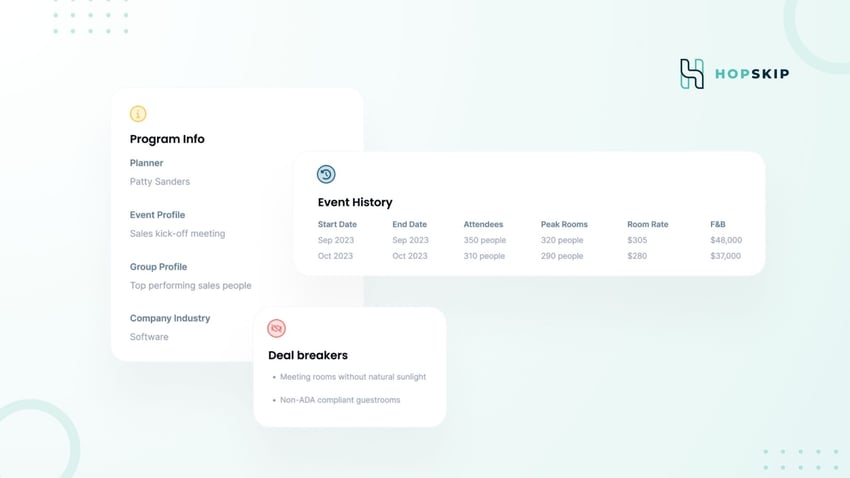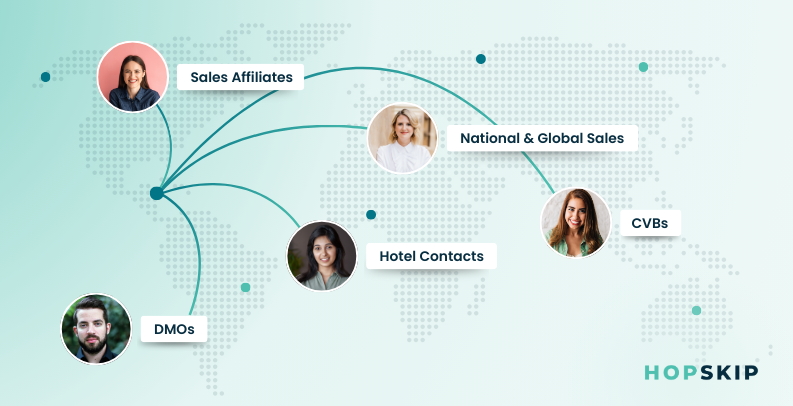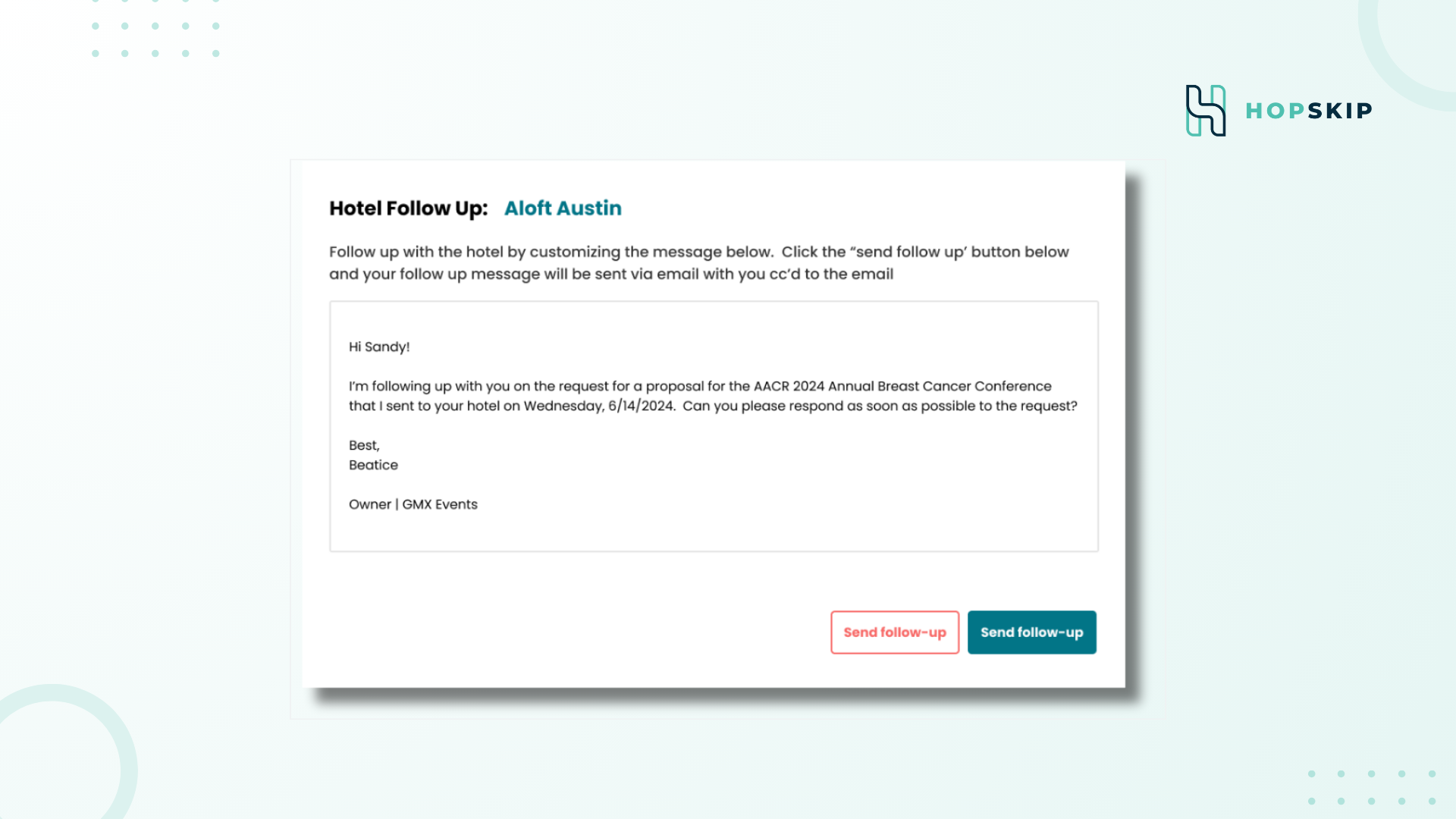10 Tips to Boost Your Hotel Event RFP Response Rate
Enhance your RFP process and get timely hotel responses with these 10 strategies.

Introduction
In the dynamic world of business meetings and events, efficiency is key. Your success hinges on how effectively you can communicate with your hotel suppliers, and that communication begins through your RFPs (Request for Proposals).
As a planner, your ability to elicit swift and suitable responses from hotels can significantly impact the success of your events. This guide delves into ten key strategies to consider implementing in your RFP process, leading to quicker, and more aligned responses from hotels.
With a more streamlined RFP process, you can save valuable time and resources. By being clear and concise in your communication, you eliminate any confusion and ensure that hotels understand your event's objectives and requirements from the start.
This blog post explores ten powerful strategies to transform your RFPs into magnets for quick, relevant hotel responses. We've condensed these tips into a downloadable infographic to add to your planner toolkit.
1. Be Clear
Begin with a clear summary of your event's objectives and needs. Include all necessary details like expected attendee numbers, room block sizes, meeting space requirements, etc.
Tip: Use plain language and avoid industry jargon to ensure clarity. An RFP that is easy to read and understand is more likely to be responded to promptly.
Key information to communicate in your hotel event RFPs:
- Request Type
- Group type
- Event Type
- Dates
- Program Info
- Room Block Details
- Event Space
- Contract Terms
- Questions
- Concessions
- Attachments
2. Use a Standardized Format
A standardized RFP format helps hotels locate the needed information, leading to faster responses. It reduces confusion and helps in comparing proposals easily.
Templates tailored to specific event types will expedite the process and guarantee that no critical information is overlooked. Hotels will appreciate the consistency and ease of assessing your request, enabling them to respond promptly and precisely.
💡Tip: Utilize templates that cater to various event types. This saves time and ensures you don’t miss out on any critical information. A consistent format allows hotel partners to assess requests and respond promptly and accurately.
3. Provide History
If the event has been held in the past, providing historical data of past events can also greatly benefit your RFP process. By sharing details such as the event's location, attendee numbers, F&B spend, and room rates, prospective hotels can benchmark their services against previous venues.
This invaluable insight allows them to tailor their proposals to your needs and assess their suitability as your next event host.
Consequently, hotels will be better equipped to provide you with relevant and competitive proposals, reducing the need for follow-up questions and expediting the response time.

💡Tip: Providing details of your event's historical data allows prospective hotels to benchmark their services against those of past venues. This insight not only aids them in tailoring their proposal to your specific needs but also in assessing their suitability as your next event host.
4. Note multiple dates you’ll consider
Flexibility is key in securing the best rates and hotel availability. By indicating that you are open to considering alternative dates or requirements, you open doors for negotiation and potential cost savings.
Hotels that may be unable to accommodate your original dates can offer competitive packages for alternative dates, ensuring you have multiple options. This flexibility fosters a collaborative environment that encourages hotels to provide you with the most favorable terms and value-added services.
Example:
| Event Start Date | Event End Date |
|---|---|
| October 7th, 2024 | October 9th, 2024 |
| October 14th, 2024 | October 16th, 2024 |
| October 21th, 2024 | October 23st, 2024 |
5. Leverage Technology
Leveraging technology is another game-changing strategy. Hotel event-sourcing platforms streamline the RFP process and offer real-time tracking, allowing for prompt follow-up and quicker response times.
These platforms provide a centralized hub for RFP-related information, making creating and distributing RFPs to multiple hotels easy. They also offer valuable data and analytics to inform decision-making and improve response rates.
![]()
Hotel event-sourcing platforms are a game-changer for event planners, transforming RFPs into magnets for quick and relevant hotel responses. Platforms like HopSkip facilitate prompt follow-up and quicker response times, enhancing your overall efficiency.
Features such as side-by-side comparisons, robust analytics, and clear proposal presentations elevate your decision-making process, ensuring you select the most suitable hotel partners for your event.
💡Tip: When choosing a sourcing platform, ensure it includes features for side-by-side comparisons, robust analytics, and clear proposal presentations to elevate your decision-making process
6. Establish Clear Deadlines
Set expectations and define a clear response deadline and your estimated date for awarding the booking. This sets a timeline for hotels and helps you plan your follow-up actions. Providing hotels with clear deadlines can avoid unnecessary delays and keep the RFP process on track.
💡Tip: Balance urgency and realism. Offer advice on setting realistic deadlines that consider the typical response times in the hotel industry.
Example: Include the following key dates in your RFP
- Hotel Response Date: The date you need to receive all requested hotel proposals
- Estimated Decision Date: The date you estimate you’ll be awarding the booking
.png?width=1920&height=1080&name=timeline%20(1).png)
7. Build Relationships
Building relationships with hoteliers can also significantly impact the speed and quality of their responses. While juggling multiple hotels in an RFP may be challenging, investing time in developing these relationships can yield tremendous benefits.
By fostering a personalized connection, you can guarantee faster and more tailored responses from hotels, enhancing the overall success of your events.

8. Follow Up Strategically
Timing Your Follow-Ups:
Strategic and efficient follow-ups are crucial for maintaining momentum and ensuring timely responses. Using courteous yet assertive templates for follow-up emails lets you stay on top of hotels' minds without intruding.
Following up Efficiently and Consistently:
Timing your follow-ups appropriately, such as 48-72 hours after sending the initial RFP, allows you to gently remind hotels without overwhelming them.
Consistency and follow-up approach will demonstrate your professionalism and commitment, encouraging hotels to respond promptly.

💡Tip: Use templates for follow-up emails that are courteous yet assertive, ensuring you stay on top of the hotel's mind without being intrusive.
9. Be Open to Negotiation
Create Win-Win Situations: Focusing on creating win-win situations. Emphasize the importance of understanding the hotel's perspective and finding common ground.
Negotiation is a powerful tool to create win-win situations. You can establish mutually beneficial agreements by emphasizing the importance of understanding the hotel's perspective and finding common ground. This approach strengthens your relationship with the hotel and maximizes the value you can derive from your partnership.
10. Provide Feedback and Centralize Historical Rates
Share Constructive Feedback: Provide constructive feedback to hotels after the RFP process. This can include aspects they did well and areas for improvement.
Centralize Historical Rate Data: Along with feedback, systematically record and centralize historical rate data from each hotel. This practice will assist in benchmarking and analyzing rate trends over time and identify opportunities for negotiation in future RFPs.
Leverage for Continuous Improvement: Utilizing a centralized database of rates and feedback, refine your future RFP strategies. This data-driven approach will enable you to make more informed decisions, tailor your proposals more effectively, and foster stronger, more efficient relationships with hotels based on past performance and pricing trends.
Conclusion
By adopting these approaches, you'll see quicker, more relevant hotel responses and establish a framework for ongoing improvement and stronger partnerships.
From clarity in communication to leveraging technological advances, building lasting relationships, and centralizing valuable historical data, each element plays a pivotal role in driving efficiency.
Download our free guide, 10 Ways to Increase Your RFP Response Rate, to add to your planner toolkit with our handy infographic, and embark on a journey towards more impactful and streamlined event souring!